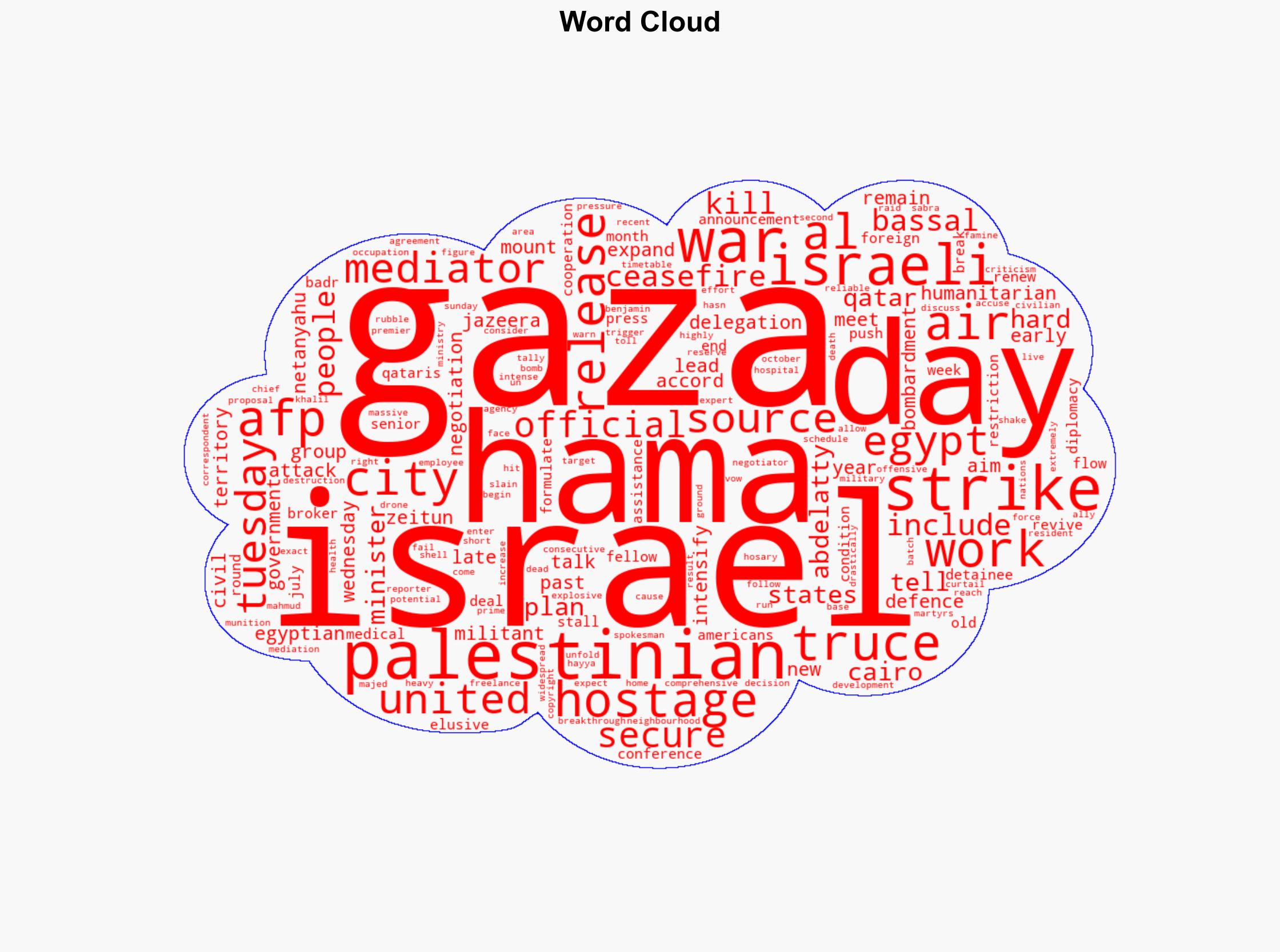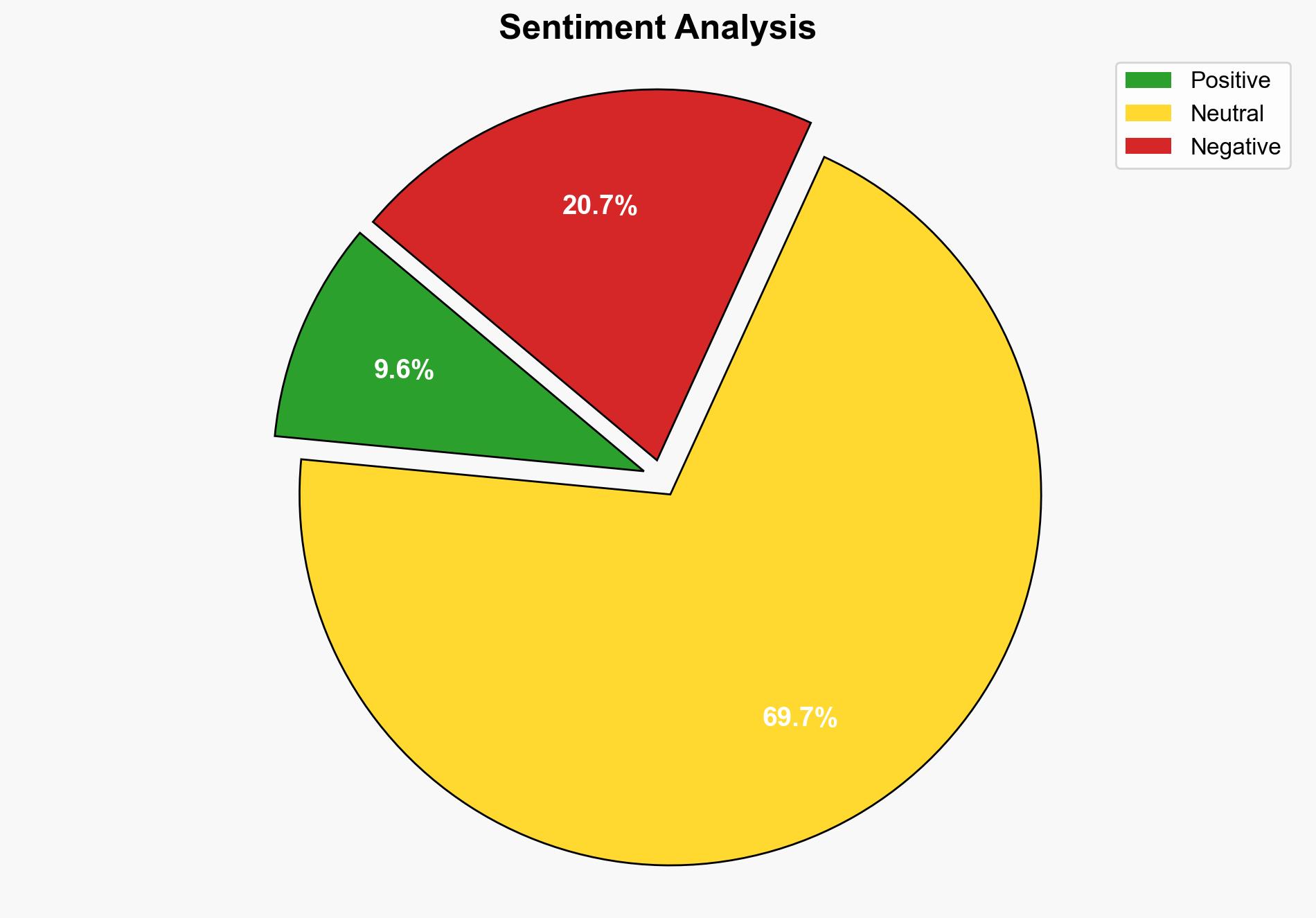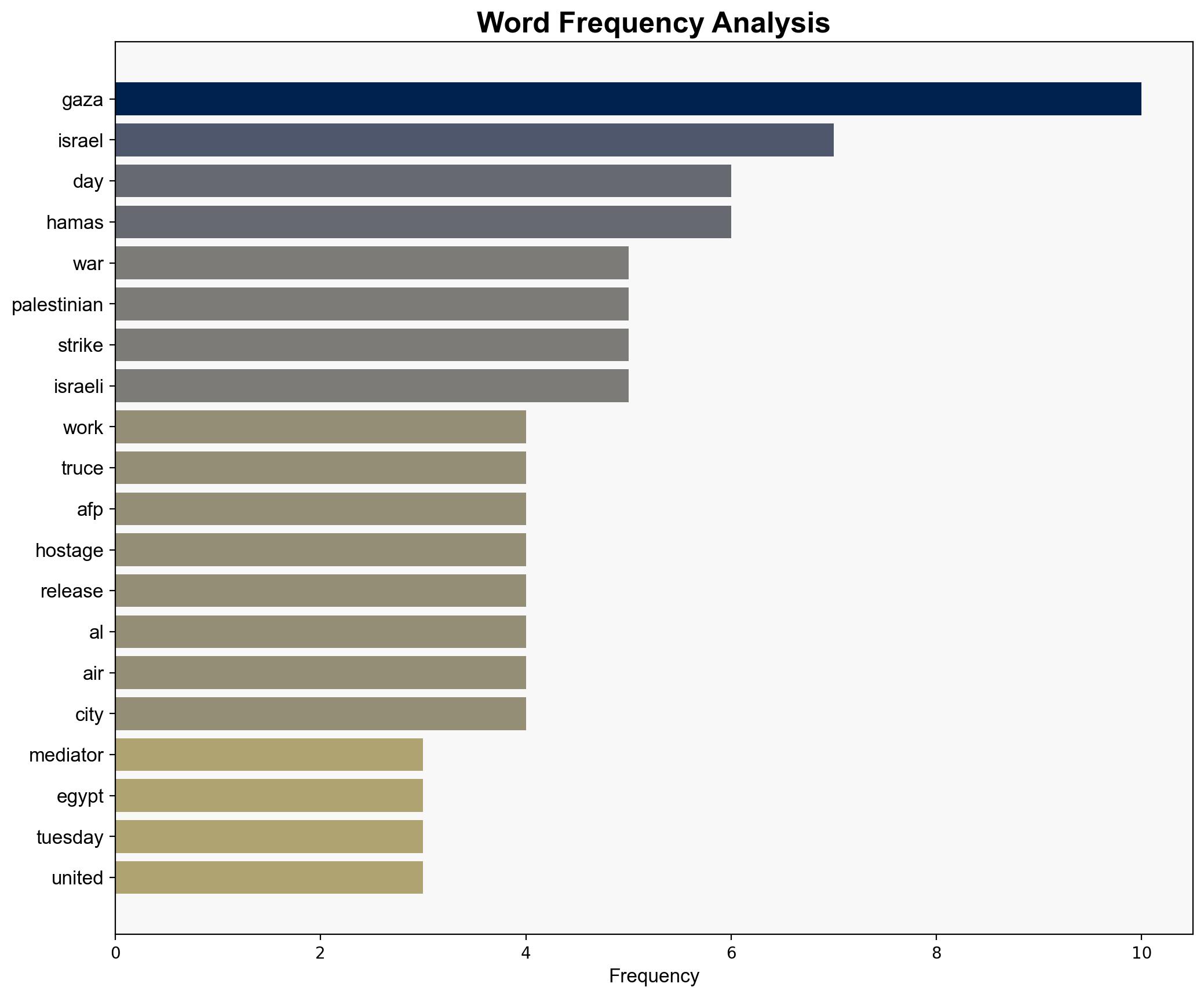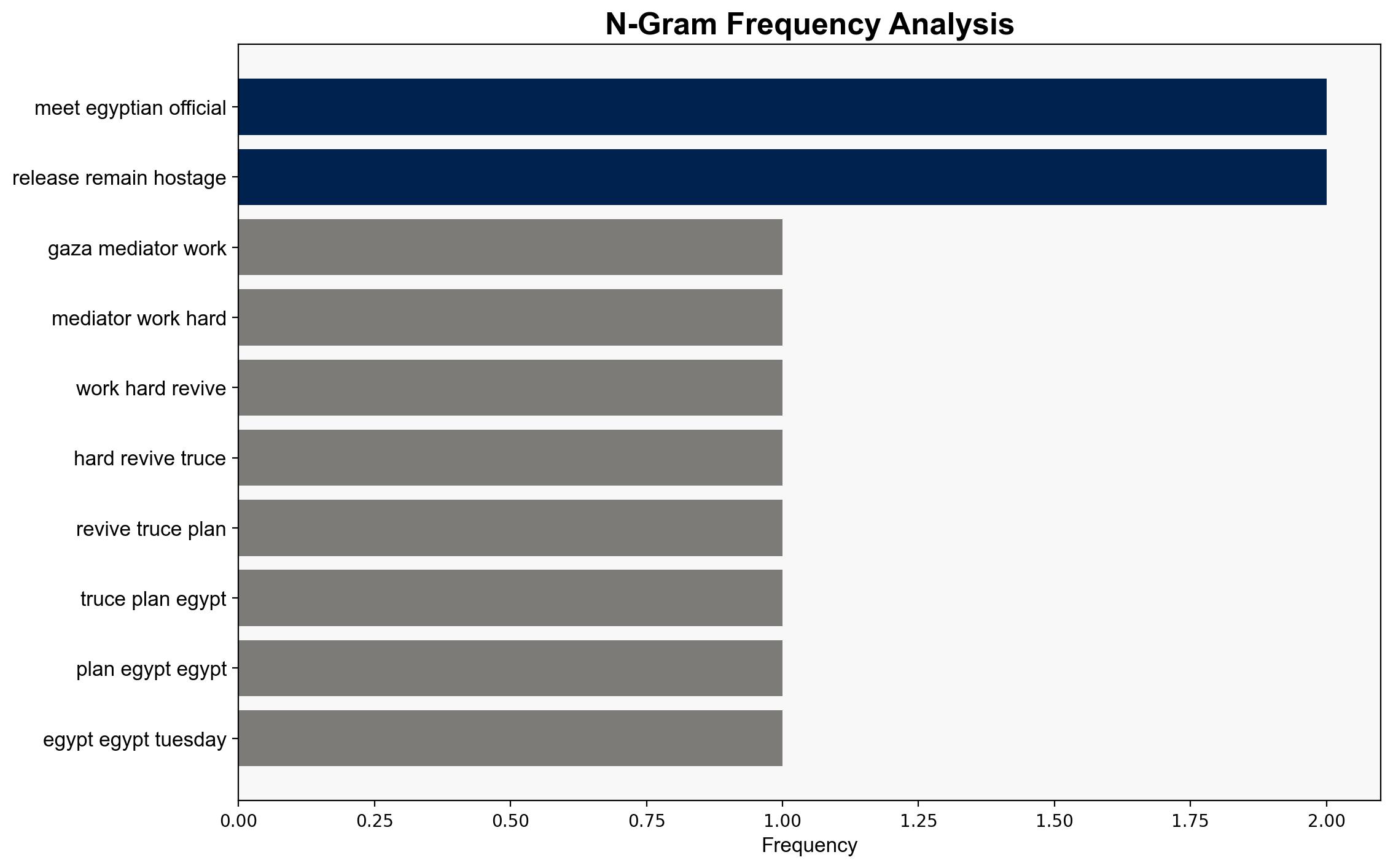Gaza Mediators ‘Working Very Hard’ To Revive Truce Plan Egypt – International Business Times
Published on: 2025-08-12
Intelligence Report: Gaza Mediators ‘Working Very Hard’ To Revive Truce Plan Egypt – International Business Times
1. BLUF (Bottom Line Up Front)
The most supported hypothesis is that the mediation efforts led by Egypt, Qatar, and the United States are unlikely to achieve a lasting ceasefire in the near term due to entrenched positions and ongoing hostilities. Confidence Level: Moderate. Recommended action includes diplomatic engagement to address underlying issues and humanitarian support to mitigate the immediate crisis.
2. Competing Hypotheses
Hypothesis 1: The mediation efforts will successfully broker a temporary ceasefire, leading to a short-term reduction in hostilities and humanitarian relief in Gaza. This hypothesis is supported by the active involvement of key regional players and past instances of temporary truces.
Hypothesis 2: The mediation efforts will fail to achieve a ceasefire due to deep-seated mistrust, ongoing military actions, and political pressures on both sides. This hypothesis is supported by the recent intensification of Israeli airstrikes and the failure of previous mediation attempts.
3. Key Assumptions and Red Flags
– Assumption 1: Regional mediators have sufficient influence over both Israel and Hamas to broker a ceasefire.
– Assumption 2: Both parties are willing to compromise for a ceasefire.
– Red Flag: The intensification of Israeli airstrikes suggests a potential escalation rather than de-escalation.
– Red Flag: The lack of a clear timeline and conditions for negotiations indicates potential stalling tactics.
4. Implications and Strategic Risks
– Continued hostilities could lead to a humanitarian crisis, exacerbating regional instability.
– Failure to achieve a ceasefire may encourage further radicalization and recruitment by militant groups.
– Economic impacts on the region could increase due to sustained conflict and disruption of trade routes.
– Geopolitical tensions may rise, drawing in additional international actors and complicating diplomatic resolutions.
5. Recommendations and Outlook
- Engage in multilateral diplomacy to address core issues beyond the immediate ceasefire, such as border control and economic development.
- Increase humanitarian aid to Gaza to alleviate civilian suffering and reduce the potential for radicalization.
- Scenario Projections:
- Best Case: A temporary ceasefire is achieved, leading to a framework for longer-term peace negotiations.
- Worst Case: Escalation into a broader conflict involving regional actors.
- Most Likely: Continued intermittent hostilities with sporadic ceasefire attempts.
6. Key Individuals and Entities
– Badr Abdelatty
– Khalil al-Hayya
– Benjamin Netanyahu
– Mahmud Bassal
7. Thematic Tags
national security threats, regional conflict, mediation efforts, humanitarian crisis




